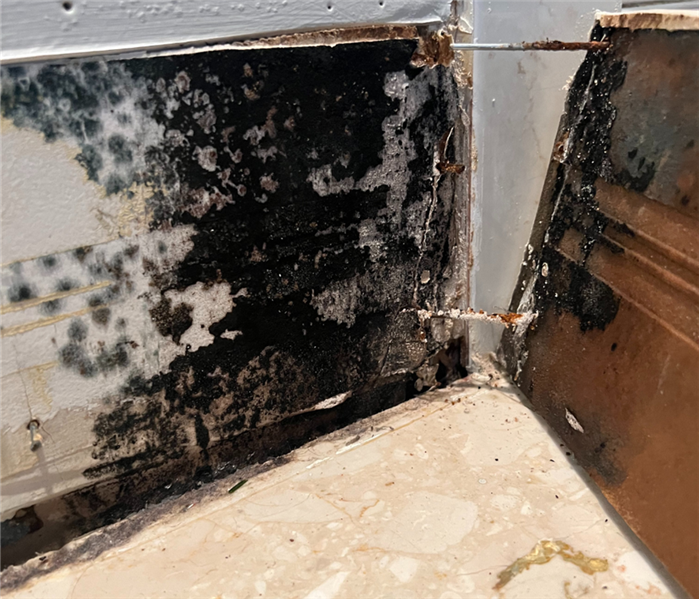Essential Tips for Preventing Mold in Your Fairfield, CT Basement
5/1/2024 (Permalink)
Your basement may serve many functions, from storage to extra living space. However, your basement can be highly susceptible to mold growth due to their low ventilation, high humidity, and vulnerability to water leaks. If mold develops in your basement, it can cause serious issues and even results in structural damages that can compromise the integrity of your home.
Fortunately, there are proactive measures and regular maintenance that can be performed to help prevent the likelihood of mold in your Fairfield, CT basement.
Here are some essential tips to keep your basement mold free:
Control Moisture Levels: Moisture is the primary reason for mold growth. Keep humidity levels in check by using a dehumidifier, especially during humid seasons or in areas prone to moisture buildup. Aim for indoor humidity levels between 30% and 50%. Additionally, ensure proper ventilation by installing vents or exhaust fans to promote air circulation and prevent stagnant air.
Address Water Intrusion Promptly: Leaks or seepage from plumbing, foundation cracks, or poorly sealed windows can introduce moisture into your basement, creating an ideal environment for mold growth. Regularly inspect your basement for signs of water intrusion, such as dampness, water stains, or musty odors. Address any leaks or water damage promptly to prevent mold from taking hold.
Improve Drainage Around the Foundation: Proper drainage is essential for keeping water away from your home's foundation. Ensure that gutters and downspouts are clear of debris and direct water away from the foundation. Consider installing a sump pump or French drain system to manage excess groundwater and prevent seepage into the basement.
Seal and Waterproof: Seal cracks or gaps in the foundation, walls, and floors to prevent water infiltration. Apply waterproof sealant or paint to basement walls and floors to create a barrier against moisture. Consider installing a vapor barrier or moisture-resistant insulation to further protect against moisture intrusion.
Promote Air Circulation: Stagnant air creates pockets of moisture where mold can thrive. Maximize air circulation in your basement by using fans or opening windows regularly, especially when weather permits. Consider installing a vent fan or air exchange system to improve ventilation and reduce humidity levels.
Keep Basement Clean and Clutter-Free: Mold thrives in cluttered, dusty environments. Keep your basement clean and clutter-free by regularly removing debris, old belongings, and organic materials such as cardboard boxes or paper. Vacuum and dust surfaces regularly to eliminate potential food sources for mold spores.
Use Mold-Resistant Materials: When renovating or finishing your basement, opt for mold-resistant building materials such as mold-resistant drywall, paint, and flooring. These materials are designed to inhibit mold growth and can help safeguard your basement against mold infestations.
Be Proactive with Maintenance: Prevention is key when it comes to mold control. Make regular inspections and maintenance of your basement a priority to catch potential issues early and prevent mold from taking hold. Address any signs of water damage, leaks, or humidity problems promptly to nip mold growth in the bud.
By implementing these proactive measures and staying vigilant, you can create a mold-free environment in your basement, ensuring a healthy and safe space for you and your family to enjoy.





 24/7 Emergency Service
24/7 Emergency Service
